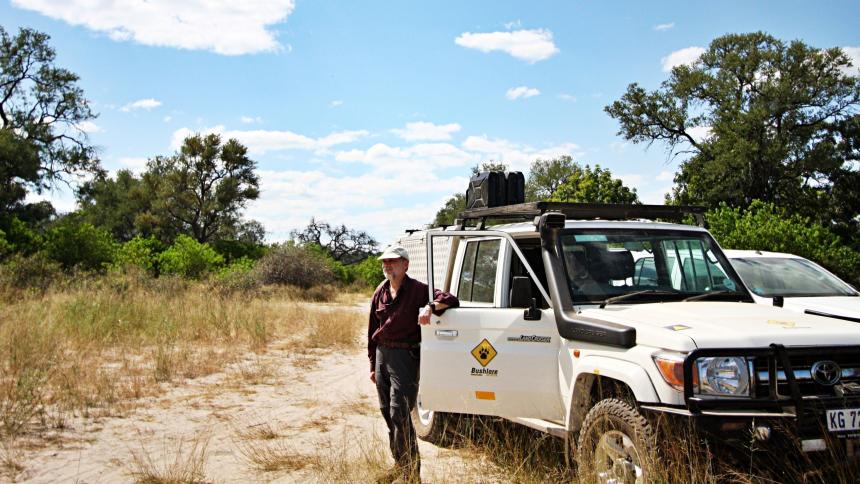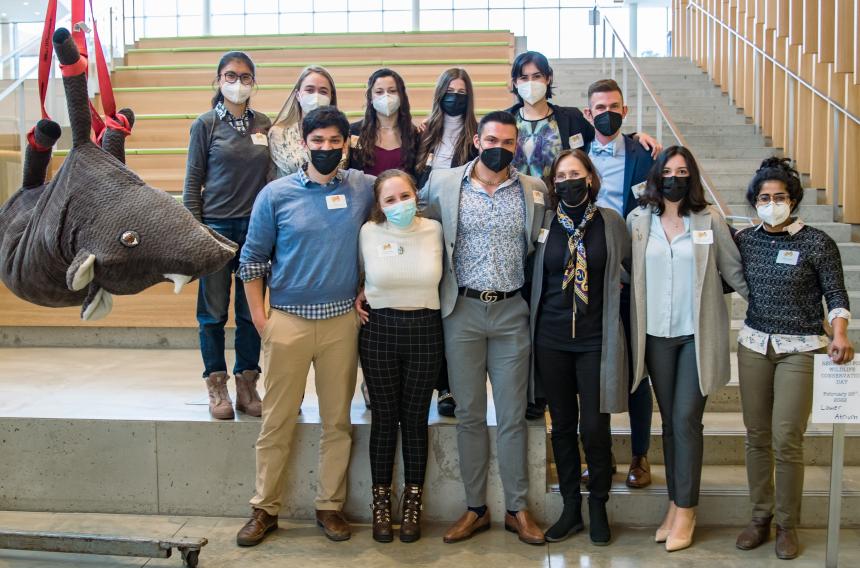In the News

May 09, 2023
The cross-disciplinary Cornell Global Grand Challenge explores how, and why, Earth’s beings are always on the move. This includes research by Dr. Steve Osofsky, DVM ’89, who has long studied the effects of fences on migratory elephants and other wildlife in southern Africa.

February 05, 2023
Congratulations to Maggie Swift, who will be joining us as an Atkinson Center Postdoctoral Fellow! Maggie will use advanced computer modeling to simulate elephant movements in southern Africa that will make it easier to evaluate scenarios for integrative, sustainable land-use management.

January 18, 2023
From Ithaca to the plains of southern Africa, the Cornell Wildlife Health Center is working to heal the natural world. Launched in 2020, the center was formed to unite Cornell’s leading wildlife health professionals under a common mission: to repair the fractured relationship between people and nature.

Video
November 18, 2022
Our team has been working in the Kavango Zambezi Transfrontier Conservation Area to reduce wildlife-livestock conflict, improve community livelihoods, and restore ancient wildlife migration pathways, including those of Africa’s largest remaining population of elephants (~220,000). This video was taken by Cornell Wildlife Health Center Dr. Steve Osofsky.

Video
November 04, 2022
Cornell Wildlife Health Center director Dr. Steve Osofsky takes you on a brief tour of our One Health work around the world.
Video
November 01, 2022
An amazing sight — a colony of thousands of Carmine Bee-eaters in the Zambezi Region, Namibia caught on camera by Dr. Steve Osofsky, director of the Cornell Wildlife Health Center and professor at the Cornell University College of Veterinary Medicine.

August 29, 2022
Cornell and regional partners have, over many years of collaboration, developed innovative ways to resolve conflicts at the wildlife-livestock interface in the interest of advancing transfrontier conservation and sustainable economic development.

Video
August 12, 2022
“This is why we do what we do,” says Cornell Wildlife Health Center director Dr. Steve Osofsky, who took this video of an elephant herd this spring while working with local partners in the Kavango Zambezi Transfrontier Conservation Area in southern Africa.

March 21, 2022
Cornell’s Zoo and Wildlife Society hosted its first Wildlife Conservation Day Feb. 26, a one-day symposium devoted to education and training for students with an interest in non-domestic species.

January 31, 2022
The Cornell Wildlife Health Center continues to enhance synergy among many of Cornell’s wildlife-focused programs, expand student learning opportunities, and capitalize on earnest interdisciplinary approaches to addressing key wildlife conservation and related public health challenges.
